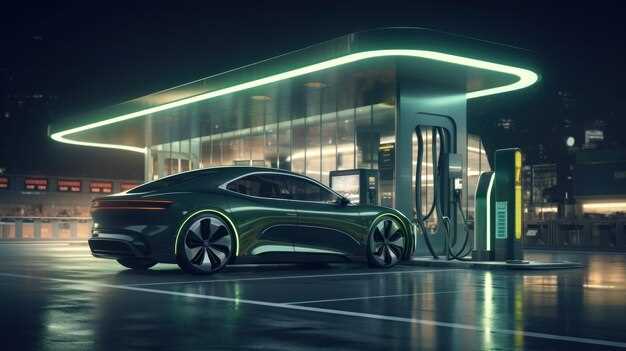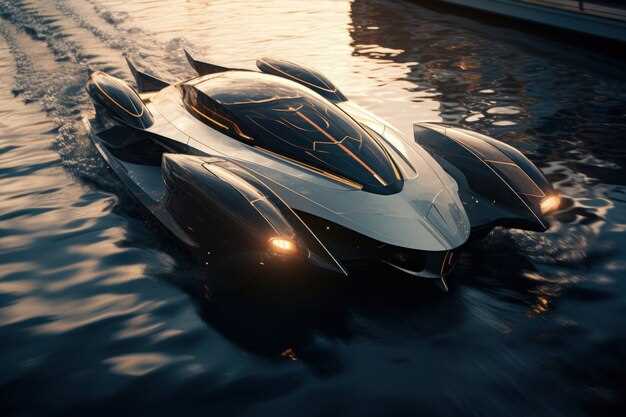If you seek sophistication combined with sustainability, consider the Porsche Taycan. This all-electric sports sedan delivers performance without compromise, boasting 0 to 60 mph in just 3.1 seconds. With a range of up to 227 miles, it ensures you enjoy thrilling rides while minimizing your carbon footprint. The Taycan’s interior features exquisite craftsmanship, showcasing Porsche’s dedication to luxury.
Next on the list is the Audi Q4 e-tron, a luxury compact SUV that seamlessly blends comfort with innovation. With its spacious interior and cutting-edge technology, the Q4 e-tron offers a range of about 250 miles. The vehicle’s sleek design, paired with Audi’s renowned Quattro all-wheel drive, guarantees both style and performance. Enjoy advanced safety features along with a premium sound system that enriches every journey.
Don’t overlook the BMW i4, a striking electric coupe that redefines the electric driving experience. A single charge takes you around 300 miles, complemented by BMW’s renowned handling. Offering up to 536 horsepower, the i4 forms a perfect union of luxury and excitement. Inside, high-quality materials and a minimalist design create an inviting atmosphere for both drivers and passengers.
Lastly, consider the Lexus NX 450h+. This plug-in hybrid SUV excels in fuel efficiency while offering a smooth and quiet ride. With a combined output of 304 horsepower and an electric-only range of around 37 miles, it perfectly meets the demands of daily commuting and weekend getaways. The Lexus Safety System+ provides peace of mind, making every drive a secure experience.
Performance Metrics: Comparing Horsepower and Torque
Horsepower and torque are critical performance metrics that influence driving dynamics in luxury hybrid and electric cars. Horsepower measures the engine’s ability to do work over time, impacting the top speed and acceleration capabilities. Torque, on the other hand, refers to the rotational force generated by the engine, affecting how quickly a vehicle can reach its desired speed from a standstill.
When selecting a luxury hybrid or electric vehicle, consider the horsepowers. For example, the Porsche Taycan offers up to 750 horsepower in its Turbo S variant, allowing it to accelerate from 0 to 60 mph in just 2.4 seconds. This impressive figure makes the Taycan one of the quickest options currently available.
Torque plays an equally vital role. The Tesla Model S Plaid boasts a staggering 1,020 lb-ft of torque, providing instant power delivery and an exhilarating driving experience. This characteristic enhances off-the-line acceleration, making it a favorite for enthusiasts who value rapid response times.
An ideal approach when comparing these metrics is to look for a balance that suits your driving style. A car with high horsepower but lower torque may excel in maintaining high speeds, while a model with substantial torque will maximize acceleration and responsiveness. Understanding your preferences will guide you to the right choice.
For instance, if spirited driving in urban environments is your priority, a vehicle like the Audi e-tron GT, which combines potent torque with a robust horsepower output, may be ideal. It provides a smooth yet thrilling drive experience suited for city streets.
In summary, evaluating horsepower alongside torque will help you select a luxury hybrid or electric car that aligns with your performance expectations. Each metric influences your overall driving experience, ensuring you find a satisfying blend that suits your lifestyle.
Battery Technology: Understanding Range and Charging Times
Choose models equipped with lithium-ion batteries for optimal range and efficiency. These batteries typically offer higher energy density compared to older technologies, allowing for longer distances on a single charge. For instance, many luxury hybrids like the Lexus NX 450h+ boast impressive ranges, easily exceeding 30 miles in electric mode alone.
Investigate charging times closely. Fast-charging capabilities are vital for reducing downtime. Many electric vehicles utilize DC fast charging, which can replenish up to 80% of the battery in about 30 minutes, making them convenient for road trips. Brands like Porsche with the Taycan allow for rapid charging, minimizing interruptions during your drive.
Evaluate the estimated ranges. Luxury models such as the Tesla Model S Long Range can achieve around 396 miles, presenting a well-rounded option for long-distance travels. Regularly check the manufacturer’s specifications, as this can vary widely between models, impacting your daily usability.
Consider battery management systems that enhance longevity and performance. Advanced thermal management allows batteries to maintain optimal temperatures, prolonging lifespan and efficiency. This technology is present in vehicles like the Audi e-tron, ensuring peak performance across different driving conditions.
Be mindful of driving habits and environmental factors, as they significantly affect range. Aggressive acceleration and extreme temperatures can deplete battery life more rapidly. Opt for driving modes that prioritize efficiency when possible to extend your vehicle’s range.
Finally, assess the availability of charging infrastructure. Cities are rapidly installing more chargers, making electric options increasingly practical. Sync your vehicle’s navigation system with nearby charging stations for ease of access during your travels.
Interior Features: Luxury Amenities and Technology Integration
Choose models like the BMW iX or the Tesla Model S for an extraordinary in-car experience. Both offer spacious cabins designed with premium materials that exude sophistication.
- Seating Comfort: Look for heated and ventilated leather seats with customizable settings. The Mercedes-Benz EQS excels here, providing multiple position adjustments and memory functions for different drivers.
- Sound Systems: A premium sound system enhances the ambiance. The Audi e-tron features a Bang & Olufsen setup, delivering crisp audio that elevates your driving pleasure.
- Infotainment: Access to intuitive infotainment systems is non-negotiable. The Porsche Taycan’s interface stands out with a responsive touchscreen and voice control, enabling hands-free operation of key functions.
- Smart Connectivity: Ensure seamless integration with smartphones. The Nissan Ariya supports both Apple CarPlay and Android Auto, making it easy to sync your devices and access navigation or music.
Focus on features like ambient lighting that can be adjusted to fit your mood. The Rivian R1T incorporates customizable colors throughout the cabin, creating a personalized atmosphere.
- Driver Assistance: Advanced driver-assistance features like adaptive cruise control and lane-keeping assist enhance safety. The Lucid Air sets the bar high with its comprehensive suite of driver support systems.
- Climate Control: Efficient climate control systems add to comfort levels. The Volvo C40 Recharge impresses with a dual-zone system that lets both the driver and passenger set their preferred temperatures.
Finally, expect luxury hybrid and electric cars to offer sustainable materials, like recycled plastics or sustainably sourced wood. This not only enhances aesthetics but also shows a commitment to the environment.
Environmental Impact: Assessing Carbon Footprint and Sustainability
Choosing a luxury hybrid or electric car significantly lowers your carbon footprint, as these vehicles emit fewer greenhouse gases compared to traditional gasoline-powered cars. For instance, electric vehicles (EVs) contribute zero tailpipe emissions, while hybrids reduce reliance on fossil fuels. Understanding the full life cycle of these cars–from manufacturing to charging–is crucial for assessing their overall environmental impact.
Manufacturing electric vehicles can produce higher initial emissions due to battery production. However, studies show that over their lifetime, EVs and hybrids compensate for this through lower operational emissions. The shift to renewable energy for charging further enhances sustainability, making it vital to consider how green the electricity used is in your region.
Battery technology also plays a role in sustainability. Innovations in lithium-ion batteries and the emergence of solid-state batteries promise to decrease resource extraction impacts and improve recycling processes. Look for manufacturers focusing on closed-loop systems that minimize waste and emphasize sustainable sourcing of raw materials.
By utilizing public charging options or home solar panels, you maximize the eco-friendly potential of your electric or hybrid vehicle. Evaluate local infrastructure for charging stations and renewable energy sources to further your commitment to sustainability. Companies producing these vehicles are actively pursuing carbon-neutral goals, and your choice can align with these efforts.
Consider brands that prioritize sustainable practices in their supply chains, like those using recycled materials in their vehicles. Researching such manufacturers enhances your investment in environmentally responsible technologies that mitigate climate change.
Finally, keeping vehicles well-maintained maximizes their efficiency, extending their lifespan and sustainability. Regular service can ensure that your car performs optimally, reducing waste and energy consumption. A conscious choice of vehicle can lead to meaningful reductions in your overall environmental impact.
Ownership Costs: Evaluating Maintenance and Depreciation Rates
Hybrid and electric vehicles often reduce maintenance expenses compared to traditional combustion engines. Their simplified mechanics, including fewer moving parts and no oil changes, significantly lower service costs. Battery maintenance remains a key factor; however, many manufacturers provide warranties that can extend beyond eight years, adding peace of mind for buyers.
Depreciation rates for hybrids and electrics vary. While early models experienced steep declines, recent trends show improved resale values, especially for well-regarded brands. Data indicates that premium electric models retain value better than their gas counterparts. For instance, a Tesla Model 3 can depreciate at rates lower than 10% in its first year, compared to 15-20% for similar luxury gasoline vehicles.
| Vehicle Model | Average Annual Maintenance Cost | 3-Year Depreciation Rate |
|---|---|---|
| Tesla Model 3 | $400 | 10% |
| Porsche Taycan | $600 | 15% |
| Lexus RX 450h | $450 | 20% |
| BMW i4 | $500 | 12% |
Investing in a luxury hybrid or electric vehicle can lead to savings in both maintenance and depreciation. Selecting a model renowned for durability and innovative technology can minimize long-term costs. Keep an eye on manufacturer warranties and potential tax incentives, which can also significantly impact ownership profitability.
Market Trends: Identifying Upcoming Models and Innovations
Watch for the 2024 models from high-end manufacturers such as BMW, Audi, and Porsche. Each brand is set to launch exciting hybrids and electric vehicles that blend luxury with sustainability.
- BMW i5: Scheduled for release in late 2023, this model promises both electric performance and premium interior features. It combines advanced technology with a spacious and luxurious cabin.
- Audi Q8 e-tron: This SUV redefines electric luxury with a powerful electric drivetrain and cutting-edge infotainment system expected in early 2024. Look for exceptional range and dynamic handling.
- Porsche Macan Electric: Anticipated to debut in 2024, the Macan Electric will likely maintain the sporty feel Porsche is known for while offering an impressive electric range.
Innovations in battery technology drive these trends. Manufacturers are investing in solid-state batteries, which promise quicker charging times and longer lifespans. This shift will enhance the practicality of luxury electric vehicles.
- Faster Charging: Look for charging stations with ultra-fast charging capabilities becoming widely available in urban centers and along highways.
- Enhanced Connectivity: Expect upcoming models to integrate advanced AI features that personalize the driving experience through voice recognition and adaptive navigation.
- Smart Features: Features like over-the-air updates ensure your vehicle’s software remains current, enhancing functionality without needing a dealership visit.
Pay special attention to upcoming collaborations between tech companies and automakers, which will likely result in innovative in-car experiences. Brands are increasingly partnering with tech giants to incorporate the latest advancements in automotive technology.
Investing in the luxury hybrid and electric market opens doors to not just sustainability but also a new standard in comfort and convenience. Keep an eye on these models and innovations as they reshape the future of driving.






